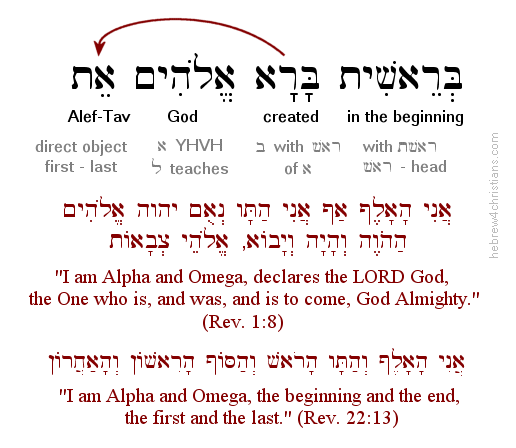|
THE IDEA THAT A PERSONAL GOD CREATED the universe "out of nothing" (i.e., yesh me'ayin: יֵשׁ מֵאַיִן ) is a matter of special revelation that is not directly known through the operation of unaided natural reason. Of course human reason may (rightly) infer that since "every effect requires a cause," and since the universe itself is an effect, there must be a cause sufficient for the existence of the universe. Likewise, human reason may again (rightly) infer that the universe itself must have had a beginning, since it is impossible to traverse an infinite number of causes to arrive at a present effect, and therefore there must have been an immensely powerful and transcendental "First Cause" that started the entire chain of causation itself. (This "First Cause" answers the metaphysical question, "Why is there something [at all] rather than nothing?") However, human reason, by itself, can only take us so far, and something more is needed to apprehend the nature of reality.
In philosophical theology, an argument that God is the Cause of the universe is sometimes offered to invoke the possibilty that the God of the Jewish Scriptures exists, though strictly speaking this inference is not warranted given the premises and logic of "cosmological" arguments alone. Indeed, the ancient Greek philosophers used this kind of reasoning to justify their own speculations about the cosmos (e.g., Plato's Form of the Good, Aristotle's Unmoved Mover, etc.), and yet their philosophical systems never connected the First Cause with a morally perfect personal Creator (אֱלהִים) who made mankind in His image and who therefore requires loving trust to know Him. The Greek conception of God (θεὸς) was abstract, impersonal, and essentially a theoretical construct employed to make sense of the physical cosmos. Nowhere in their speculations will you find the idea that the First Cause has revealed Himself as the Source of all moral truth in the universe and who therefore functions as mankind's Eternal Judge. And nowhere in their thinking will you find the Covenant-Making God (יהוה) who redeems humanity from sin and judgment by means of the atoning sacrifice of Yeshua on the cross... Beyond the abstract awareness that the universe is the effect of an immensly powerful and transcendental First Cause, unaided human reason has precious little to say. As the French philosopher and mathematician Blaise Pascal once wrote, "The God of the philosophers is not the God of Abraham, Isaac, and Jacob."
To the Hebrew mind, reality is the handiwork of a single all-knowing, all-powerful, and morally perfect Creator who has personally revealed Himself to key individuals in the drama of human history. As such, reality is intensely, overwhelmingly, and even hauntingly personal... Truth therefore is a matter of trust -- not abstract knowledge -- whereas "knowledge" is primarily about practical ethics, moral obligation, and cult practices (i.e., Temple worship). For the Hebrew mind, truth is more akin to moral fidelity than it is to propositional correspondence; it is more a matter of the heart than of the head (for more on this, see "Theology and the Greek Mindset").
A Roman emperor once asked Rabbi Joshua if the universe had a ruler. The sage answered, indeed, the LORD is the Creator of all things, as it is written, "In the beginning, God created the heavens and the earth." The emperor then asked, "Why then is God not like the emperor of Rome, who is seen twice a year so that people may know and worship him?" Rabbi Joshua said that unlike human kings, the LORD was too powerful for people to see; as it is written in the Torah: "No person shall see Me and live." The emperor was skeptical, however, and insisted that unless he could physically see God, he would be unable to believe. Rabbi Joshua then pointed to the sun high in the sky: "Look into the sun and you will see God." The emperor tried to look into the sun, but was forced to cover his eyes to keep them from burning: "I cannot look into the sun," he said. Rabbi Joshua then replied: "Listen to yourself: If you cannot look into the sun which is but one of God's creations, how can you expect to look at God?" (adapted from Sefer HaAggadah)
The New Testament affirms that knowing that the First Cause of the universe is the personal God revealed in the Jewish Scriptures is the result of faith in God's direct revelation: "By faith (בָּאֱמוּנָה) we understand that the universe [lit. "worlds"] were created by the utterance of God (בִּדְבַר אֱלהִים), so that what is seen [i.e., the "effect" of the universe] did not come into being out of existing phenomena [i.e., was made yesh me'ayin - 'out of nothing']" (Heb. 11:3). Again, this is a matter of special revelation directly imparted by God's grace so that the soul may apprehend the Divine Light that preceded the creation of the worlds. Faith "looks not to the things that are seen but to the things that are unseen. For the things that are seen are transient, but the things that are unseen are eternal" (2 Cor. 4:18). This "collision" with the world of everydayness creates a restlessness or homesickness for our true home in heaven... (May God help each of us persevere.)
The very first phrase of the Scriptures, "In the beginning God created..." (Gen. 1:1), is therefore the starting point of all true and right thinking about the universe itself. Everything else follows from this revealed truth which natural (i.e., human) reason can merely approximate. God alone can create yesh me'ayin - "out of nothing" (the Hebrew verb bara (בָּרָא) is used exclusively to refer to God's power in this way), and therefore God stands exaltedly apart from the universe as its unique Creator and personal Master. This is the guiding thought that overshadows all that follows in the pages of Scripture. God is holy - separate - and entirely unique. He is the Personal God who loves, wills, speaks, intends, etc., and to whom human beings owe their allegiance and life. The God of Israel is not some indifferent deity that functions as a theoretical construct to explain the universe: He is the Source of all life, the personal Judge and Redeemer of all people.
Hebrew Lesson
Genesis 1:1 reading (click):
|




